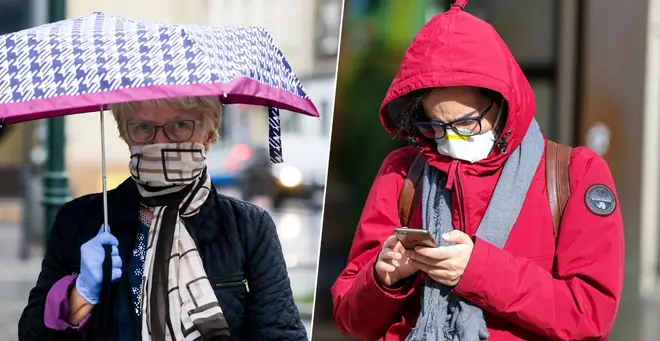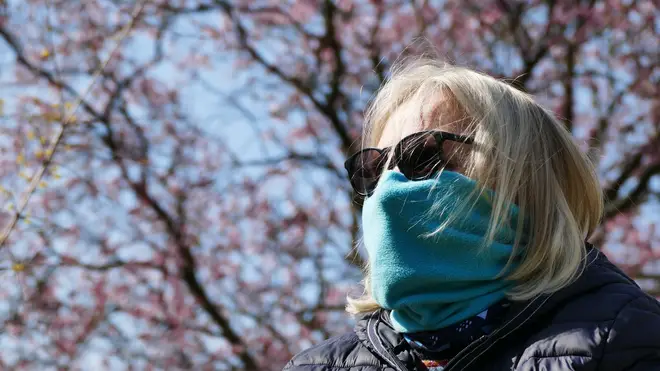Doctors warn people against using scarves as face masks
16 July 2020, 11:56 | Updated: 16 July 2020, 12:01

Scientists in Oxford have claimed basic fabric coverings may not work as well as face masks.
As of July 24, it will be compulsory for everyone in the UK to wear face coverings while in supermarkets and high street shops, or risk facing a £100 fine.
The Government has said these coverings can be made from fabric items such as scarves and bandanas, as long as they completely cover your mouth and nose.
But now experts are warning that these can be less useful than traditional masks, with loosely woven fabrics shown to be the least effective.
Scientists at the Leverhulme Centre in Oxford have been studying different kinds of face coverings used by people from the general public.

Matt Hancock says no current plans for mandatory face masks in offices and schools
From the findings, director Professor Melinda Mills told The Mirror: "Attention must also be placed on how well it fits on the face; it should loop around the ears or around the back of the neck for better coverage.
Read More: How to use Face ID to unlock your phone while wearing a face mask
"We find that masks made from high-quality material such as high-grade cotton, multiple layers and particularly hybrid constructions are effective.
"For instance, combining cotton and silk or flannel provide over 95% filtration, so wearing a mask can protect others."
Non-medical grade face masks are often made to be resistant to droplets of fluids and splashes, which can significantly lower the wearer's risk of infecting someone else in an enclosed environment.

The World Health Organisation also advises a three-layer face covering, and states the outer layer should be water resistant and the inner should be water absorbent.
Despite this warning, in a report recently published by the Royal Society, it suggests that even homemade face coverings can reduce transmission of COVID-19.
The results showed that if an entire population wore face coverings that were only 75% effective, it would reduce the R value (the number of people someone with coronavirus passes the virus on to) from 4.0 to under 1.0, without the need for a lockdown.
The UK Government's new policy on face coverings will start from July 24.
People not complying with the rules will face a potential fine of £100, which can be dropped to £50 if paid within 14 days.
Children aged 11 and under are not required to wear face coverings, as well as people with certain disabilities.






















